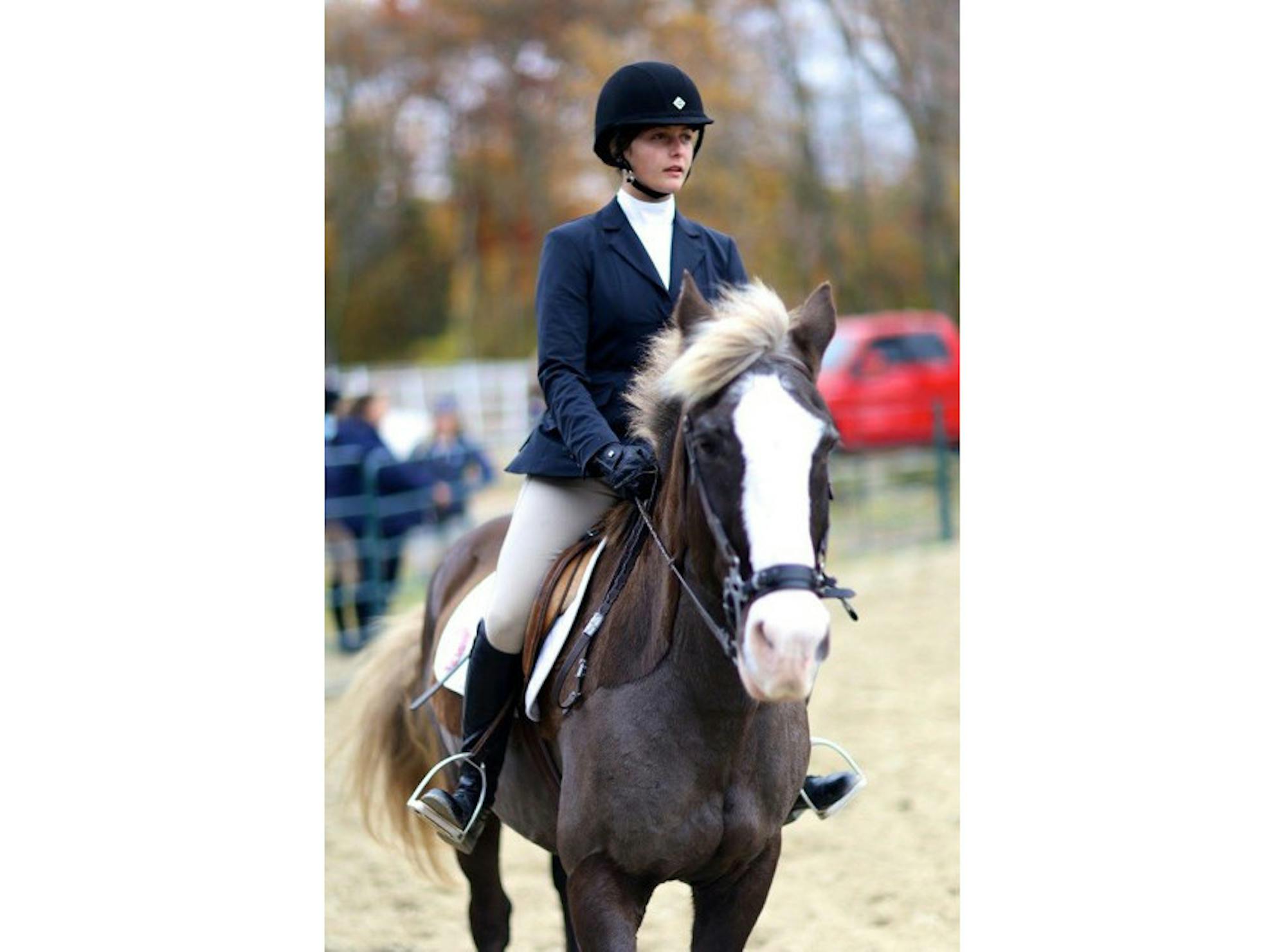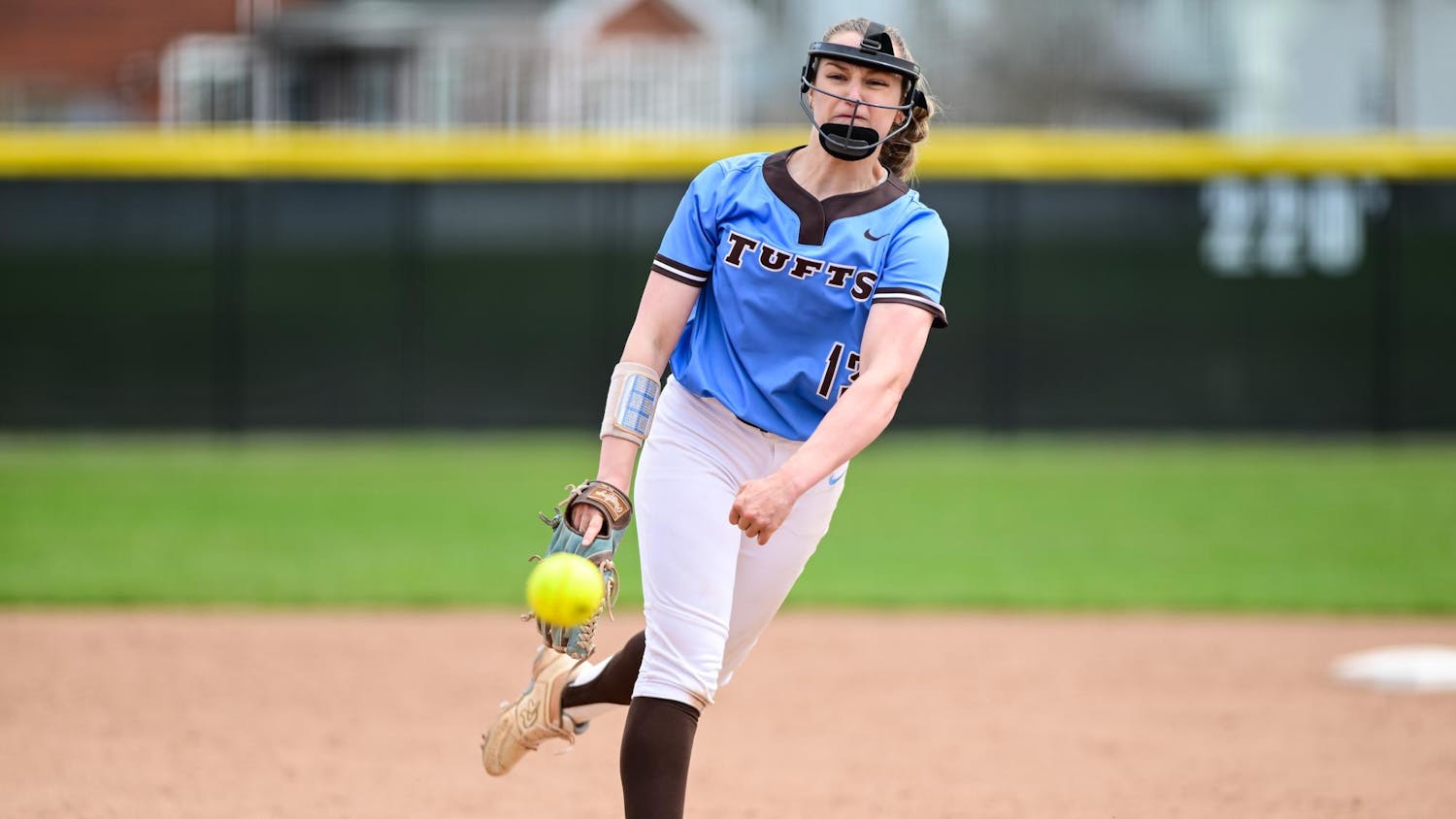After posting a strong record for the fall semester, the equestrian team is looking ahead to its first competition of 2016 as the team hopes to ride its way back to nationals in May. The team, currently sitting in the top spot in its region with a comfortable 19-point margin over the second place Stonehill College, is set to compete on March 6 at Bentley University and is determined to defend its position.
This year's equestrian team boasts a co-ed roster of 27 riders and a whole lot of accolades. Although the team is admittedly a lesser-known club sport on campus, the team has seen a resurgence over the past few years and is vying to win its region once more, as it has for four out of the past five years.
“Last year, we qualified for the national championship for the first time in 20 years, and we placed 10th out of the 400-odd teams in the country, so it’s really exciting,” senior tri-captain ChaseBoggio said. “We are setting our sights to do hopefully as well, or even better, as we are coming into the post-season period.”
The team competes as part of the Intercollegiate Horse Show Association (IHSA), the main national sporting body of club equestrian teams. Boggio explained that the IHSA is further divided into smaller regions; the Tufts squad competes in region four, which is part of a larger division representing the northeastern part of the country, zone one.Within region four, the team faces off against 12 other Boston-area schools, including Wellesley College, Boston University and Boston College.
The scoring system is also fairly unique to the sport. The equestrians perform in hunt-seat style riding competitions, which means they are judged on their ability to maintain smoothness and form on horseback. The intention is to make their rides appear effortless. However, Boggio mentioned that an interesting facet of the sport is that it works to compensate and account for varying levels of expertise in navigating the courses.
“Everybody’s score is weighted equally across the five divisions…[and] it’s just the team with the most amount of points accumulated across those five divisions [that] wins the show,” Boggio said.
The divisions span from the Open Division, designed for seasoned riders such as Boggio, down to the intermediate, novice, walk-trot-canter and walk-trot levels for newer, less experienced riders. Each rider competes against only those within their respective division and can win ribbons for their group, which are assigned point values.
Riders frequently rise up through the divisions as they improve to further their team's representation at the higher divisions. Senior tri-captain Emilie Bromley, for instance, competed in the Novice Division at the Zones and Nationals competitions last year but looks to try her hand in the intermediate division this season.
"This year, I will be competing in the Intermediate Division, which definitely adds a little pressure," Bromley said. "I've been really happy about how consistently well I have been competing in Intermediate over fences this year, so my biggest goal is to continue to perform strongly in Intermediate fences if we get to these bigger shows.”
Bromley went on to explain that if the team maintains its hold of the top spot, its will continue on to Zones, an one-day competition that sends the top two finishers in each Zone to compete in Nationals, set to be held at the National Horse Park in Lexington, Ky. this year.
The nature of equestrian also presents the team with a unique set of challenges that are distinct from those of other sports teams. Primarily, the sport lends itself to an unconventional style of coaching and practicing, stemming from the various levels that riders are competing at. They also have to overcome the hurdle posed by not having enough horses for everyone to practice at the same time.
The equestrians will typically travel twice a week to Black Horse Farm in Newbury Old Town, Mass., approximately 45 minutes north of Boston. There, they train with Head Coach Shane Powell and Assistant Coach Elissa Bentley. The challenge is fitting in practice time, which can quickly become a long affair when factoring in travel time. Bromley explained that this frequently means that practices will include anywhere between one and four people. Boggio elaborated, describing that a member of the team has been designated to deal with scheduling practice times for individuals, factoring class schedules and other demands.
The history behind the team also sets it apart from other groups on campus.
“The equestrian team is like a legacy club sport … It’s been around for a long time … for maybe 50 or 60 years," Boggio said. "We’ve actually had Olympians, very accomplished equestrians ride on the team before here. From that perspective, there is a nice tradition for the team itself.”
Still, retaining its club sport status has been a challenge in and of itself, particularly due to the resource-heavy demands of the sport. Equestrian receives some funding from the Tufts Community Union (TCU) through normal club funding measures and some from club sports, funded through Tufts Athletics, though the sources of funding are by no means comprehensive. The team’s TCU-allotted budget was recently slashed by roughly $1,500 to $10,500, part of which covers the costs associated with upkeep and competitions.
“When we, for example, ride against Dartmouth [College], who is a varsity team [that] gets funding from the college, their facilities are funded completely by the college," Boggio said. "Resources are obviously a huge consideration.”
Sophomore treasurer Maddy McCrimlisk explained that limited funding has been fairly restrictive, and has required the team to independently finance much of what it does out of pocket, which, she laments, can make it more inaccessible for students.
“We wouldn’t be able to afford to pay for everyone to have a lesson [or] training every week, so each teammate has to pay for their individual lessons…[and] this can…really be a barrier for people who aren’t able to financially commit to paying that much to be on a club team,” McCrimlisk said.
She explained that the budget set aside from club sports is used to subsidize the costs of competitions, so riders in competition still have to pay a class fee, but a portion of the burden is reduced through the TCU funding. McCrimlisk highlighted that an important aspect of remaining a competitive and successful team is keeping the sport affordable. The capital-intensive nature of equestrian has also caused the team to get creative and turn to other outlets for raising the necessary funds to remain competitive.
“Right now, one way we really supplement our Athletics funding besides paying individually is through fundraising, [through] newsletters to alumni, as well as events,” McCrimlisk said.
Boggio also emphasized that receiving recognition has been a consistent challenge for the team.
“We are a really competitive team," he said. "We win a lot, and we really take pride in that, so just getting our name out there is exciting and letting everyone know how well we are doing is something that we work toward.”
On an individual level, certain members have been dependably delivering top performances, enough to garner several individual spots at Regionals. Boggio, Bromley and McCrimlisk, along with senior tri-captain Maris Nyhart and juniors Hannah Schwartz and Da Eul Kim,have all qualified to compete as individuals at the regional show on April 2. Notably, Boggio recently made history as the second rider to ever win the Tournament of Champions medal on three separate occasions.
As for the overall performance of the team, Boggio, Bromley and Schwartz have been among the team's leading scorers, regularly racking up big points for the Jumbos throughout the fall half of the season. The walk-trot division has had a particularly strong showing this season, thanks in part to Kim and fellow juniors Candace Smith and Maretta Morovitz, who has been out recently due to injury but hopes to make a comeback for the final show.
Both Boggio and Bromley believe that what really sets equestrian apart from other club sports is the close-knit bond that the team has formed. Even though only around 10 team members will compete in a competition at a time, teammates who are not performing often come out in a show of support for their fellow equestrians.
For Boggio, who has been riding for most of his life, the environment that the Tufts Equestrian Team has fostered has shaped his college experience and redefined his outlook of the sport.
“From my personal experience, you don’t get the opportunity to ride oftentimes on a team in equestrian," Boggio said. "It is a team sport from the perspective that it’s you and the horse, but I’ve gotten a very different experience of riding here…because if you have a bad day, your teammates lift you up and you do the same for them when they’re in a tough situation … Riding has been ... fulfilling, and I think it’s something you don’t really realize until you experience it.”
Equestrian team trots to top spot

The Tufts Equestrian Team, currently the first place in its region, looks to qualify for Nationals.





